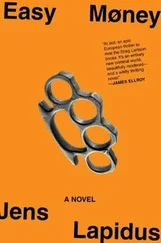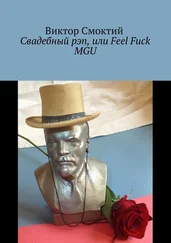Gürhan held the cylinder up against the pale sky. Clearly visible: five empty chambers and one with a bullet in it. He spun the cylinder. The sound was reminiscent of the wheel spinning on a roulette table. He grinned widely. Aimed at Mahmud’s temple. A clicking sound when the hammer was pulled back. Mahmud closed his eyes. Began to whisper the creed again. Panic took over. The flashes of light in front of his eyes returned. His heart was pounding so hard his ears almost popped.
“Okay, let’s see if you’re a blessed blatte .”
A click.
Nothing happened.
NOTHING HAPPENED.
He opened his eyes again. Gürhan grinned. Daniel laughed. The other guys howled. Mahmud followed their eyes. Looked down.
His knees were wet from the damp ground. And something else: along his left jeans leg. A long stain.
Loud laughs. Jeers. Cruel grins.
Gürhan handed the piece back to Daniel.
“Next time maybe I’ll fuck you instead. You little girl.”
Frenzied feelings. Hope versus fatigue. Joy versus hate. Relief—but also shame. The worst was over now. He would get to live.
With this.
Curtain.
* * *
VIOLENCE AGAINST WOMEN
Over the last ten years, the number of reported cases of violence against women has increased by 30 percent, to around 24,100 reported cases, according to the numbers provided by the Swedish National Council for Crime Prevention. This is probably due, in part, to the fact that more cases of abuse are reported, but also due to an actual increase in violence. Meanwhile, the number of cases that go unreported is high. In previous studies, the Swedish National Council for Crime Prevention has estimated that only one in five cases are reported to the police.
In about 72 percent of reports, the woman is familiar with the perpetrator. Most often, the man and the woman have had a close ongoing or ended relationship.
In 21 percent of the total number of cases, the perpetrator was brought to justice. This means that the prosecutor, after an investigation, has found that there is reasonable suspicion that the person has committed the offense and will proceed with the prosecution, or that the prosecutor has decided to dismiss the case (if, for example, the person in question is a minor or if the crime is of a negligible nature), or that the person in question is issued a fine and/or a suspended sentence.
Violence against women and children is a societal problem that has been given quite a bit of attention over the last few years. This is due both to the creation of new laws (regarding, among other things, restraining orders, and gross violation of a woman’s integrity) and through other measures, such as the formation of a National Center for Battered and Raped Women, as well as a focus on new educational initiatives. The attention of individual organizations has also played a significant role, for example through the creation of hotlines for women and young girls in around half of the counties in the country. Despite the significant measures that have been taken, the problem remains—thousands of women are abused and humiliated each year.
The Swedish National Council for Crime Prevention
2

Niklas was back.
He was living with his mother, Marie. Tried to sleep now and then, between the nightmares. In the dream world he was hunted, tracked, punished. But, just as often, he was the one holding the weapon or kicking defenseless people. Just like it’d been when he’d been down there. In reality.
The couch was too short to sleep on, so he’d put the leather cushions on the floor instead. His feet stuck out in the cold, but it was okay—better than being folded up like a Leatherman in a three-seater—even if he was used to that kind of thing.
Niklas saw a sliver of light through the crack in the door. Mom was probably reading ladies’ magazines in there—just like she’d always done. Biographies, memoirs, and gossip. An unvarying interest in other people’s failures. She lived vicariously through news of B-list celebrities and their divorces, alcoholism, and affairs. Maybe their tragic lives made her feel better. But it was all a lie. Just like her own life.
In the mornings he remained where he was, on the cushions. Heard her get ready for work. Wondered what his life in Sweden would be like, life as a civilian. What was he supposed to do here, really? He knew what kind of jobs would be suitable: security personnel, bodyguard, soldier. The last was out, though. The Swedish armed forces wouldn’t hire someone with his background. On the other hand, it was what he knew.
He stayed at home. Watched TV and made omelets with potatoes and sausage. Real food—not dried stuff, tins, and canned ravioli. The grub down in the sandbox’d almost ruined his taste for quality meat, but now it was coming back. He left the apartment a few times. To jog, grocery shop, run errands. Not a lot of people out in the middle of the day—he ran senselessly hard. Drove the thoughts away.
He was living on borrowed time. His mom couldn’t handle his staying with her. He couldn’t handle his staying with her. Neither could handle knowing they couldn’t handle it. He had to release some pressure. Find a place to live. Make a move. Something just had to work out.
After all, he was back in easy, safe Swedeland. Where everything could be arranged with a little willpower, gung-ho, money, or Commie connections. Niklas didn’t have connections. But he did have willpower—harder than the armor on an M1A2 Abrams tank. Mom called him cocky. Maybe there was something to it. He’d been cocky enough to hold his own down there with guys who’d fuck with you for much less than a stupid English mispronunciation. And money? He wasn’t sitting on a lifelong fortune—but it was enough for now.
He was standing in the kitchen, thinking. The secret to a good omelet was cooking it under a lid. Get the eggs to coagulate faster on the surface to avoid slime on top and burning it on the bottom. He piled on diced potatoes, onions, and pieces of sausage. Topped off with cheese. Waited for it to melt. The smell was fantastic. So much better than all the grub he’d had down there, even on Thanksgiving.
His thoughts were dreary. He was back—felt good. But back to what, exactly? His mom was present absent. He didn’t know who he knew in Sweden anymore. And how was he doing, really? If he truly let himself feel, for once? Confusion/recognition/fear. Nothing’d changed. Except for him. And that was terrifying.
During the first years he’d been gone, he’d come back once a year or so. Often got R & R around Christmas or Easter. But now it’d been over three years since the last time. Iraq was too intense. You couldn’t just up and leave. He’d hardly even spoken to Mom during that time. Hadn’t been in touch with anyone else, either. He was who he was. Without anyone knowing. But on the other hand—had anyone ever known?
The day crept by in slow motion. He was sitting in front of the TV when she came home. Still full from the omelet. Watching a documentary about two guys skiing across Antarctica—the most meaningless shit he’d ever seen. Two clowns playing at fake survival—there was a camera crew there too, obviously. How did they survive if it really was as cold and awful as they made it out to be? Pathetic people who knew less than nothing about survival. And even less about life.
Mom looked much older than when he’d been home last. Worn out. Tired. Grayed, somehow. He wondered how much she drank. How much she’d worried about him during all those nights after watching the news. How often she’d seen Him with a capital H—the man who’d destroyed their lives. The last time Niklas’d been home she’d claimed they didn’t see each other anymore. Niklas believed that about as much as Muqtada al-Sadr believed the United States wanted the best for his people. But all that was over now.
Читать дальше













